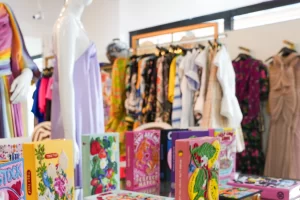What you need to know to learn educated Arabic
What you need to know to learn educated Arabic
BlogLanguagesArabHow to Speak, Read and Write in Classical Arabic: What you need to know to learn educated Arabic
Index
Discovery and learning of cultured Arabic
The origins of the Arabic alphabet
Arabic pronunciation and writing
Learn Arabic numerals
Educated Arabic, Dialect Arabic, Classical Arabic, Modern Standard Arabic … But what are all these endings? Isn’t there just one Arabic language ? Well no.
Arabic is a language marked by the Koran, whose history dates back to ancient times . Like the Romance languages, Arabic has also evolved over time.
Surely, the private classes you receive will be in cultured Arabic , a variant of the language, common to all Arabic-speaking countries so that they can understand each other. It is opposed to dialect Arabic, which is specific to each country.
Do you want to take private lessons to learn Arabic ? It’s decided: you’re going back to class! In this article, Superprof provides you with everything you need to know to learn to speak, read and write Classical Arabic.
Discovery and learning of cultured Arabic: What you need to know to learn educated Arabic
Before diving headlong into learning Arabic, let’s clarify some generalities.
What is cultured Arabic?
Since we are talking about classical Arabic , we are going to start by defining what a classical language is: it is a prestigious language of a certain culture, the bearer of a literature that is considered classical: ancient, founding, worthy of being taught and imitated . The classical language, also called vehicular, is opposed to the vernacular, which is the everyday linguistic use of a language.
Classical Arabic allows you to read ancient and sacred texts such as the Qur’an.
As such, Classical Arabic (and Persian) is a language of great spread, spoken by 270 million people throughout the Arab-Muslim world.
You will surely come across terms such as cultured, classical and literal Arabic . It is the same: the variant of the language used by intellectuals, the media and institutions, and it has established itself as an international language. It makes it easier for the 270 million Arabic speakers in the world to understand the same official language.
Being the eighth most widely spoken language on the planet , Literal Arabic combines classical Arabic and modern standard Arabic. It differs from dialect Arabic, made up of regional Arabic dialects: Egyptian Arabic, Moroccan, Moroccan-Bedouin, Algerian, Tunisian, Maltese, Syrian, Iraqi, etc.
Learning literal Arabic allows access to ancient texts from more than a millennium and a half. Therefore, literal Arabic is equivalent to the Arabic of writing, ancient and current texts, as well as sacred documents: the Koran.
Obviously, you can study Arabic in Spain. His legacy is more than evident, both in the Spanish language and in the culture and architecture of many Spanish cities, and today there are almost two million Arabic speakers in Spain. You have many options at your disposal to learn cultured Arabic:
You can take Arabic classes at home: find your ideal teacher on Superprof.es
You can take Arabic classes online: there are many pages on the Internet that will make you discover this fascinating language.
You can learn the language of Allah and the Qur’an at universities, private institutes and academies specialized in learning Arabic.






